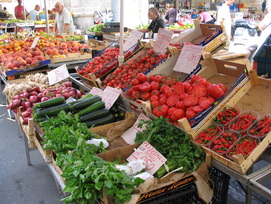 Over the past two weeks there have been many Scripture readings in the liturgy which involve giving food to those in need. One example is the wonderful reading from Exodus 16 in which Moses begged God to feed the Israelites as they trudged through the wilderness on the way to Mt. Sinai. God sent them bread from heaven, (manna), and also quail, so that they would be satisfied. This Sunday we heard two readings like this. The first reading from the Second Book of Kings tells of a man who comes to the prophet Elisha with twenty barley loaves during a time of famine. Elisha used it to feed "a hundred people" and they had bread left over, as God had evidently promised the prophet. The Gospel, John 6:1-15, was about Jesus multiplying five barley loaves and two fish for a huge crowd; there were so many leftovers that John says “there was more than they could eat.” Other than the obvious Eucharistic references, it seems that all of these stories point to the same thing: God’s overwhelming generosity which goes beyond what we might expect or deserve. In the reading from 2nd Kings, Elisha responded to the generosity of an unnamed man who came to him with 20 loaves of bread to share with the community during a difficult time. (2 Kings 4:42-44) This was not just any barley bread. The passage says that it was made from the “firstfruits and fresh grain in the ear.” That means the man brought from the best of his crops. It was the best wheat that he would produce all year, not flour from the left over or merely average wheat. This means it was a huge sacrifice for this man to share as he did. God was so pleased with this man’s offering that He told Elisha He would provide more than they needed; He said that no one would go hungry and that there would be some left over. And indeed this is what took place.  All four gospels contain the story of the multiplication of the loaves and fish, a fact which seems to emphasize how important it is. In each gospel version we see that gathered in a remote spot was a hungry crowd of thousands who were there to hear Jesus preach and to be healed of various ailments. Therefore, Jesus had been giving of Himself all day. Upon hearing how hungry they were and how impossible it would be to feed them, a young boy seemed to come out of nowhere with five barley loaves and two fish which he was willing to relinquish to help feed the masses. (John 6:9) I have never heard anyone talk about his gift, but it occurred to me that he was probably making a large sacrifice in giving up his food to try to help other people. Jesus then gave thanks to His Father and dispersed the bread and fish. In the end there were 12 huge baskets of food left over, more than they had before they started to share! Once again generosity began with a selfless person followed by God making the gesture stretch further than needed. It seems that not only does God love a cheerful giver, but He is simply delighted when we are generous. This is because in being generous we are the being like Him.  Both stories, the man who gave from his best and the boy who gave more than he probably could afford, are examples of the magis, a concept taught by St. Ignatius of Loyola which refers to going ‘above and beyond’ in our actions. In each of these passages a person gave more than just an average gift in order to help others, and in doing so, God went a step further in multiplying the effects of such a deed. Each of the givers was imitating God, whom they obviously knew to be generous, and in their gratitude for God’s generosity to them, they shared what they had. Therefore their gifts were blessed and multiplied by the loving care of God. 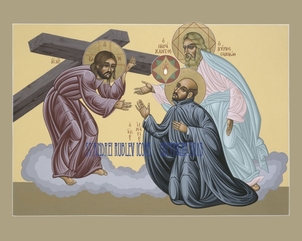 It seems to be no coincidence that St. Ignatius of Loyola is celebrated this week. (His feast is on July 31.) Among the many wonderful gifts he gave the world, Ignatius was the founder of the Society of Jesus, also called the Jesuits. He and his first handful of followers, (continued by the Jesuits of today), patterned everything they did on the model of God I just described: generously serving God’s people using one’s gifts, especially shared through education, prayer, and service. St. Ignatius knew firsthand of the great generosity of God. He had pored over the Scriptures for months on end after a difficult injury, a long convalescence, and subsequently as a pilgrim, and he came to know that he had been forgiven many times by God for things he had done. In all his praying and reflection he came to realize that everything God does is oriented toward giving: God is Love and in this love God labors for us. That is, God gives us not only what we need, but He gives us more: He goes beyond. God’s love never stops, though the form in which it comes varies depending on what we need and what is best for us. The term magis comes from the teaching of St. Ignatius Loyola, and unfortunately, it is often misunderstood. The word magis is translated from the Latin to mean 'more' or trying to strive for 'the greater.' A mistake often made in understanding the term is to try to quantify what magis is about and therefore to miss the point of what Ignatius intended. Without a doubt the magis is about generosity, but it is not about quantity, it is about quality. Nor is about being the best or doing what is greatest; rather, it is giving as best one can, going a step further than ‘required.’ * Another mistake is to put the emphasis on what I can do, rather than on the fact that I do it for God. For example, if I wanted to give the poor some bread to eat, the magis is not about how many loaves I bring. It is about how and for Whom I give those loaves. Do I give them lovingly, cheerfully, and with compassion? Am I attentive on the state of the one receiving the bread and not merely on the deed of giving? (In other words, am I focusing on how ‘good I am’ for doing the deed or am I thinking of the other?) Do I give with the end in mind that I don’t just want to feed others: that I want to teach (empower) them how to feed themselves so they will have renewed dignity and become self-sustaining? And most importantly, do I imitate Jesus that they may come to know and love Him better? In the act of sharing, I need to be teaching that this is how God acts. I am not giving for my glory, I am giving for His. 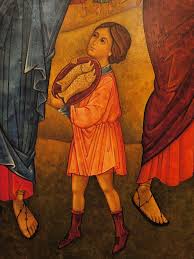 If we give of our goods with love, compassion, and mercy, the material will indeed grow when we share of it, but those who receive will do more than just grow, they will thrive. They need us to listen and see them as people, not just as those in whose hands we thrust a loaf. Just as in biblical times, others will be inspired by our good works and also share what they have, thus multiplying that which is shared. God will bless our efforts through the witness we give by imitating Him. He sends us into the world to do His work, but He does not send us without giving us the tools we need. He gave us a mind to think with, a heart to pray with, and hands and feet to work with. Magis is a 'characteristic' of the will and the heart, but also of action. St. Ignatius understood that service is about being attentive to the movements of the Holy Spirit in our prayer and then acting upon it. But he also knew that being generous is being like God. To paraphrase an old saying, "Imitation is the highest form of praise." If we want to praise God, we need to imitate Him. If we want to imitate Him, then we need to be generous with our gifts and our material goods, but mostly with our love. Therefore, let us reach out to the poor, whether materially, physically, emotionally, or spiritually so that we may make God known and loved, just as St. Ignatius taught in his imitation of the works of Jesus. 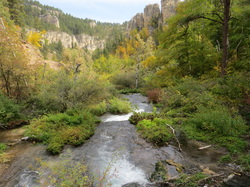 May we become more generous of heart! May we give cheerfully as God gives to us so that we may not only live the magis, but teach others who God is through our words and our deeds! May we learn to recognize the movements of the Holy Spirit so that we may be moved to action! May we live in gratitude for the blessings which we have received! May we look to the saints and holy ones who are examples of the generosity of God, imitating them and praying for their intercession! And may we multiply the rich bounty of compassion, mercy, and love which we have received, glorifying the Giver as we share in His gifts! Let us continue to meet in the heart of our generous Lord! Peace! ©Michele L. Catanese *I have used the writing of Fr. James Martin, SJ as an aid in defining the concept of the magis. You can find a complete definition and description of the magis in his book The Jesuit Guide to (Almost) Everything, pages 369-71. The photos are all mine. The first one was taken at an outdoor market in Catania, Sicily. The next two photos were also taken in Sicily. The bread basket was taken during dinner at a farm house just outside Noto; the fish was taken at an outdoor fish market, in Catania, near the site of the first photo. The icon which is next is called St. Ignatius Vision in the Chapel of La Storta, by Fr. William Hart McNichols. It can be found at http://www.standreirublevicons.com/all-categories/product/24-st-ignatius-vision-in-the-chapel-of-la-storta The next image is an inset from an icon of The Multiplication of the Loaves and Fishes by Sr. Patricia Reid, RSCJ. It can be found at https://www.flickr.com/photos/jimforest/5125869952 The last photo is one of mine, taken in the Black Hills of South Dakota. 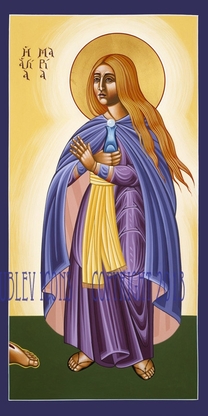 This week we celebrate the feast day of St. Mary Magdalene, a fascinating, yet mysterious woman who appears in the latter part of all four gospels. Though she is consistently mentioned, we really do not know all that much about her. There are traditions that hold that she was a reformed sinner, but then again, all of Jesus’ followers could go by that description. Some say she was the woman who wept at Jesus feet and then dried them with her hair, but there is little evidence to support that either. What we do know, however, is that she was with Jesus at the cross, she was one of three women reported in all four gospels to have been at the tomb, and seeing the tomb empty, she was the one who ran to tell the apostles. We also know that Jesus appeared to her on the morning of His resurrection. After that, all four gospel writers give us different stories as to what actually took place at the tomb. Mary Magdalene therefore, is a bit mysterious even in the part of her life in which we have the most evidence. We know that Mary Magdalene was a devoted friend and follower of Jesus, but each of the gospels says something different about her role on resurrection morning. Matthew tells us that she and two other women saw an angel at the empty tomb and were instructed by him to go and tell the apostles what they had witnessed. On the way, they met Jesus and He told them to give the apostles the message that they should go to Galilee where they would see Him. Mark tells us that Mary Magdalene saw Jesus first and then went to tell the apostles who did not believe a word of her story! * Luke reports that she and the other two women saw the angel and then ran to tell the apostles who did not believe, except for Peter who did go to see the tomb. But Luke does not tell us that Mary Magdalene witnessed the risen Jesus at all. Finally, John’s gospel says that not only did Mary see the empty tomb, but that Peter and John believed her story, and after they left the tomb Jesus appeared to her, saying her name, assuring her that He was indeed risen. 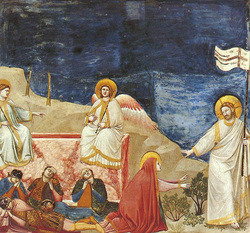 Though there are conflicting details, however, it is the main events that are important. That some of the evangelists said the apostles did not believe immediately is not too much of a stretch because they were afraid, shaken by the events which had transpired and at the realization of their own momentary cowardice: they had abandoned Jesus in His hour of greatest need. Perhaps it was a bit threatening that this woman had been brave where they had ‘failed,’ or that they had a sense of guilt which was in part why they reacted unfavorably toward her news. Though Luke and John report that Peter believed very quickly, this may have been a nod to his leadership and that he had been chosen by Jesus as such. No matter what the reasons were, the fact remains that she held fast to her story even when the apostles did not believe her, and she was patient with them until they came to believe, too. Like Mary Magdalene, there have probably been times when we have found it difficult to live the gospel message when others, including friends, have challenged our way of life. Sometimes even good people, consciously or unconsciously, judge those whose actions they find to be a threat. This should not come as a surprise because Jesus was clear in stating that ‘the path is narrow’ and the way of the gospel is not easy. (Matt 7:13) Just as Jesus was condemned for doing good and being compassionate while trying to free us from sin, so too will anyone who tries to live the gospel message be an object of scorn. Jesus warned the apostles many times that they would be treated as He was and so this holds true for anyone who follows Him today as well. 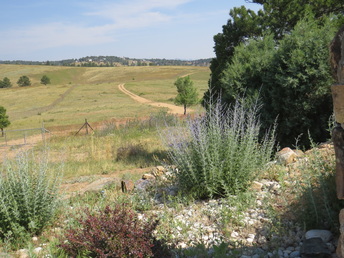 Of course, all of us make poor decisions sprinkled in with good ones throughout the course of our lives. And those who beg God to help them to do the right thing and who try to be faithful, like Mary Magdalene, will sometimes be the object of derision by those who are so busy looking at the ‘splinter in the eye of the other that they fail to see the beam in their own.’ (Paraphrase of Matt 7:3-5) The way of the gospel is a difficult path because it is tough to hold fast to what we know is right when the culture is strongly against what the Scriptures teach us. We can be unknowingly swayed inch by inch into a false belief such that what we once saw as clearly false now appears to be truth. The gospel way is not a holier-than-thou path either. Just as Mary Magdalene was a disciple bold enough to accompany Jesus to the cross when others would not, yet she was never haughty about it, we need to be humble in how we live the message. To live humbly means we recognize that our strength is in Jesus; our focus is on helping to build the Kingdom, so therefore it is not 'about me.' He will help us to live our faith, even when we feel confused or like we are barely hanging on. True humility is strong, not weak. To hold fast to our faith and to live it without apologizing for it is indeed bold; but the key is to hold to our faith, not our ego. Boldness is not self-righteousness. It is simply living the gospel as authentically as we are able. Living as the gospels teach is bold and even counter-cultural at times. To live with mercy in the face of opposition is definitely bold. To be selfless when those around us are ‘preaching’ selfishness, to be merciful and forgiving when others claim retaliation and getting our due is the way, to be generous when we see others trying to get ahead by any means, to be peaceful when we are in the presence of hate or intolerance, to be faith-filled when things go wrong, to let go when it is easier to hold on, to be present to another rather than to pretend to have all the answers, and to love when it is easier to be indifferent: these are the ways of Jesus. And it is in imitating Him that we find freedom and eternal life. None of it is easy, but Jesus is with us every step of the way. 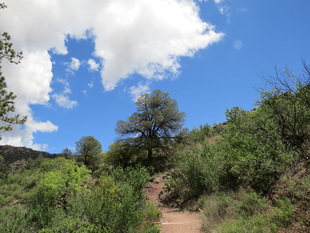 Being a follower of Jesus was never about taking the easy path and it was never about everything going our way. But we can take great hope in the knowledge that the narrow road, the one taken by Mary Magdalene, is the one which leads to eternal life. It leads to joy in knowing we are never alone and that we do not have to be perfect to travel His narrow way. If Jesus is with us, and He is, we can have joy even in the midst of challenge. This joy is what enabled Mary Magdalene to follow Jesus even though for the rest of time she is somehow erroneously remembered as a reformed prostitute or as one possessed and delivered by Jesus. None of that mattered to one who never gave up once she found her Lord. She never gave up on Him because He never gave up on her. And so it is with us: Jesus will never give up on us, no matter how imperfect our efforts. There will always be people who do not understand our choices or beliefs. There was not one saint who was approved of by everyone who encountered them. Even Jesus, the sinless One, true God and true man, the One who came to free us from the power of sin and death, the compassionate, merciful One, was hated, opposed, and put to death. How can anyone hate Love? But some did and some still do. Therefore we need to stay firm in our conviction to follow Jesus. We need to hold fast to our mission as witnesses of the gospel, bringing the message to those who have not heard, and to live in love even if our actions are behind the scenes, like Mary Magdalene after the resurrection. We can find our strength as she did: in prayer, the sacraments, and through the guidance of the Holy Spirit. We can live without compromising our values or our faith by remembering that we choose to live the gospel because we love the Lord. It is about being present to others, living humbly, and relying on God to help us with that which can sometimes be difficult and confusing. Love never goes wrong if it is rooted in the gospels and in the discernment which comes through prayer. Let us be like St. Mary Magdalene, bold in our faith because of our love for Jesus.  May we ask for the intercession of St. Mary Magdalene that we may have the courage to live what we believe, especially when we feel challenged! May we be remembered for our mercy, compassion, and love for the Lord and therefore our love for our brothers and sisters! May we be humble in love, non-judgmental in our living, and peaceful in our relationships! May we always depend on the Father as the One who loves us unconditionally! May we rely on Jesus to help us live the gospel consistently! And may we trust in the Holy Spirit to help us discern rightly in difficult situations! Let us continue to meet in the heart of Jesus! Peace! ©Michele L. Catanese *Further, in Mark we hear that the two disciples on the road to Emmaus were not believed by the apostles either. It seems the apostles needed to see to believe. In Mark’s version, Thomas is not the only doubter! (John has the story of Thomas doubting, to be clear.) The icon at the beginning of the post is St. Mary Magdalene Equal to the Apostles by Fr. William Hart McNichols. It can be found at http://www.standreirublevicons.com/all-categories/product/76-st-mary-magdalen-equal-to-the-apostles The next painting is Noli me Tangere by Giotto. The original is in the Arena Chapel in Padua, Italy. It can be found at http://www.haverford.edu/religion/faculty/amcguire/imagesmm/giottonolisc.jpg The following three photos are all mine. The first was taken near Golden, Colorado on the grounds of the Shrine of St. Frances Cabrini. The second photo was taken during a hike in Big Bend National Park in west Texas, and the third photo was taken in Cloudcroft, New Mexico while at the Solar Observatory there.  This past week we had two versions of the gospel passage in which Jesus commissioned the apostles to go out to surrounding towns in Israel and proclaim that the Kingdom of Heaven was at hand. I wondered how they felt when Jesus told them not only to make this proclamation, but also that they were to cure the sick, raise the dead, cleanse lepers, and drive out demons. And as if that is not daunting enough, they were to take nothing with them, not even a walking stick for the journey. (Matt 10: 7-10) It had to be surprising for them to have been with Jesus for a relatively short time and then be told to go out and do exactly what they saw Him do, including miracles. However, they had to realize that Jesus would not have sent them if He did not think they could do these things. He had empowered them during their time with Him, so out they went just as He instructed, seemingly without much hesitation. That makes me wonder: do we proclaim the Kingdom to be at hand with our words and actions? Are we able to ‘take nothing with us’ except our trust in God when we live our Christian faith? Jesus told the apostles to go forth totally empty-handed, but it seems He meant something more than merely to go without money or goods. He was saying that they had to totally rely on God to be with them, supplying all the necessities for safe travel and all they would need for the ministry at hand. But it was not just money and supplies they were to eliminate; they were to leave behind all their insecurities, fears, and prejudices, too. Jesus did not expect them to be perfect, but He did want them to try to love as deeply as they could by having hearts empty of fear and filled with the kind of mercy and compassion with which He had given them. They had received many gifts and so Jesus instructed them to freely give those very gifts to others. Jesus wanted the apostles to realize that all they needed to bring on their mission was found in their faith in Him. This message is for us, too.  In sharing the love they had received the apostles observed just how miraculous love is. That is, love can heal and set a person free from all that binds them. It can move mountains and melt the coldest of hearts. The apostles were being sent out to bring this miracle to those who had not heard that God loves them. And so too are we. What we have received from God is what we are called to share. However, as contradictory as it sounds, the fact is that living in love is not the easiest of ways to live. Love is not about blindly accepting everything people do or being unrealistic about the harshness of the world and its evils. Jesus does not ask us to be naïve to the reality that the world can be antagonistic toward love. It does not take long to realize that Love came into the world in the person of Jesus and ended up on a cross! So no, living as a ‘proclaimer and doer’ of love is not easy at all. Our love will be resisted, tested, mistrusted, and fought against, just as it was for the apostles. Maybe the real key is in realizing that we are to literally take nothing. To love means to give and not to take. Surely Jesus was instructing the apostles not just to go without carrying anything with them; He was also saying that they were not to take anything away from the towns they visited either. They were to bring healing, forgiveness, new life, and freedom from that which oppressed the people such as demons of every sort. The Kingdom of Heaven is indeed about freedom. But since it is given without cost, it certainly meant that the apostles were to take nothing with them from these places. They were to give and therefore to leave the places where they had been fuller and richer, not diminished in any way. They were to enter in peace and leave in peace. They were to bring God’s message and then move on. They were to leave as empty-handed as they arrived which also meant they were not to leave with judgments about the people who may have accepted or rejected them, they were not to confront, or to inflame anger, but rather to try to share the message which brought life and redemption. They knew that God always has everyone’s best interests at heart and so they were to let their words and deeds be given without expectations. And they were to glorify God, not themselves. They were to leave as they had arrived. 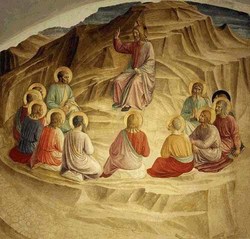 While we may desire to give to others without cost as we have been given, we would be naïve to ignore the reality that there is so much in the world which is contrary to love. Because of the work of evil, there are many who distrust love when it is offered. People who have been hurt in the name of love or who have been betrayed or abused will not trust easily. Therefore in the face of anger or hatred we need to discern what the most loving response may be. We will need to rely on the Holy Spirit to know how to proceed; that is, to know what is best not only for the person in need, but to also know if the time is right to offer anything in addition to our prayer. Jesus said: “As you enter a house, wish it peace. If the house is worthy, let your peace come upon it; if not, let your peace return to you. Whoever will not receive you or listen to your words – go outside that house or town and shake the dust from your feet.” (Matt 10: 12-14) In other words, enter in peace with the intention of sharing all that you have. But if the people reject you, do not reject them, simply leave in peace letting your example always be that of love. To proclaim the Kingdom means that when we leave a place or a room, it should be better than when we entered, but if they do not accept us or the love we have to share, we need to at least leave the place no worse for our having been there. There should be no diminishment to any place where we have attempted to live the message of Jesus. And similarly, we should not be worse when we leave a place then when we entered. We do not want to take away with us anger or resentment which comes from hostility or a lack of acceptance which had been directed toward us, nor do we want to doubt our ability to do good works. We should leave with our peace intact, too. Everything is in God’s hands. God never forces anyone to be healed or even to be loved, and therefore neither should we. We come and go in peace because the work is not ours, it is the Lord’s. 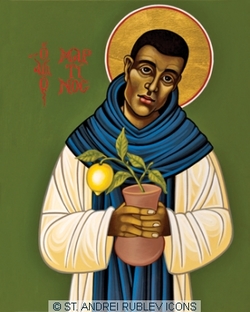 We are called to bring new life as disciples of Jesus. Like them, we are sent in peace to all those whom we encounter and we need to be especially sensitive to those who have experienced heartache, woundedness, illness, or any sort of great pain such as standing by someone in immense suffering as a caretaker to an ill partner, parent, or child. Some we meet may have been bruised and battered by life, caught up in addiction, mental illness, neglect, poverty, grief, or are lonely and forgotten. Proclaiming the Kingdom means bringing care through love and mercy, and in doing so we bring life to those who are nearly lifeless inside, whose hearts may beat physically, but are as if dead through lack of being loved well. We come to give, not to take, and therefore we open those in need to the reality that Love is the nature of the Kingdom and that they have not been forgotten. It also helps them to know that the Kingdom is not some far-off place, but it can be entered into here and now. We need to take to heart that we are missioned just as the apostles were sent forth. The people who live today are in need in just the same way as the people who lived during the time of Jesus. He needs us to be His hands and feet and to love with His heart just as much as He needed the apostles. We need to continue the work of building the Kingdom of God until the day comes when Jesus returns. As daunting as this seems, we can bring healing and new life just as the Twelve did if we learn to rely completely on God and the gifts which He has given to us. In other words, we to need to dare to love, and we need to draw all our strength from the love which He gives to us.  'May we trust in God’s love for us! May we trust in the gifts He has given us through prayer and the sacraments! May we ask for the courage to love as Jesus taught us to love! May we give life and healing to those we meet rather than to participate in that which hurts or separates! May we proclaim the Kingdom of Heaven in word and deed! And may we be generous givers, not takers, realizing that we have all we need in Jesus! Let us continue to meet in the heart of Jesus! Peace! ©Michele L. Catanese All the photos are mine. The first is of a hummingbird in a garden at Copper Mountain, Colorado. I chose this because I had the Sermon on the Mount in mind. Jesus said: "Look at the birds in the sky; they do not sow or reap, they gather nothing into barns, yet your heavenly Father feeds them." (Matt 6:26) They are 'empty-handed' yet God cares for them. The second photo is Denali, which was a bit of a 'miraculous' shot, because just a short time later the mountain was shrouded in cloud, hidden almost completely. God did not move the mountain for me, but He did move the cloud. Next is Fra Angelico's painting of The Sermon on the Mount. I chose it because it was consistent with the apostles being prepared for their mission, and with the intention of my earlier photo of the bird. Following is an icon by Fr. William Hart McNichols called San Martin de Porres. It can be found at http://www.standreirublevicons.com/all-categories/product/121-san-martin-de-porres. I chose this icon because St. Martin was born into a poor family, knew many kinds of personal suffering, and yet he dedicated his life to alleviating the suffering of others through his gift for medicine. Finally the last photo was one I took in west Texas near Big Bend. It symbolizes for me the beauty of the heavens and the earth.  Recently astronomers alerted us to an event in which the constellation Regulus and the planets Venus and Jupiter were going into conjunction. The effect of this was brighter than normal light from the synchronicity of these heavenly bodies, such that the event was referred to as being similar to what took place sometime around the years 3-2 BC, that is, the ‘Star of Bethlehem.’ Where I live it was cloudy on the night of the convergence so I did not see it, but interestingly no one reported it to be all that stupendous. It fell out of the news. Honestly, I did not expect another Star of Bethlehem event, since there was only one time when a miraculous star sighting of that magnitude would have mattered: to herald all the joy of the coming of the Son of God into the world. Yet I cannot help but think that a beacon of light might be helpful to remind us that the Son is no less present in the world today. In fact, in this world such a beacon is much needed, indeed. The world has always been exceedingly complex. Throughout the ages God has communicated with His people, sending signs of His care to us through the prophets and all the holy men and women who served Him. When God finally decided to send His Son into the world, it should not surprise us that the heavens complied, so to speak, to alert the wise men who ventured forth to see where the newborn king was born. The light of the ‘star’ not only guided them, but it provided light for Mary and Joseph, helping them navigate to Bethlehem as well. It also was a beacon for the shepherds and all those who sought out Emmanuel, God-with-us. And just as the slogan we see at Christmas says, “Wise men (and women) still seek Him,” we must seek Jesus every day of our lives and not only during the holiday season. That is why being recently alerted to the convergence of stars and planets was a good reminder. 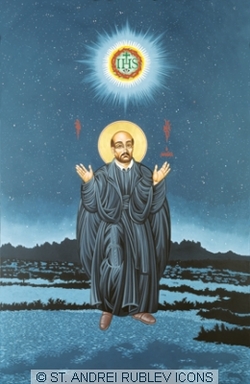 An important distinction needs to be made, however. This is not about seeking signs and wonders in order to believe that God is present. Seeking out signs is not really the best way for us to live the spiritual life. In fact, it is often discouraged since we can be easily deceived by ‘an angel of darkness masquerading as an angel of light’ as St. Ignatius of Loyola would say. If we seek signs and spiritual phenomenon not only can we fall prey to deception, but we can find ourselves disappointed when they do not happen. St. Teresa of Avila discovered that we can begin to unwittingly seek the gift and forget the Giver of the gifts. In other words, we can shift our focus from God to the gifts because we enjoy the experience too much! If that keeps up we can be deceived into many erroneous ideas such as becoming falsely humble, professing to be unworthy, while simultaneously seeking to impress others; or we can become haughty because we do think of ourselves as gifted; or we may simply stop paying attention to God, spending our time in the afterglow of the gift we received rather than being attentive to the One who sent it. Instead of seeking signs then, we need to trust that God is with us even when we do not readily perceive His presence. We need to cling to the gifts of faith, hope, and love which He has given us. This is especially true in times of struggle or trial. However, God does send us signs of His presence that we are meant to perceive. First and foremost He is present to us in Word and Sacrament. God is present in the Scriptures and this is why we should continually pore over the Bible. We will not understand everything and we will find much mystery, but the more we immerse ourselves in Scripture the more we open ourselves to His voice. When we reflect and pray over the Scriptures we can see how much we need God, but we can also see His unfathomable goodness, mercy, and love. This is unchanging: He always has been, is, and always will be; and He always has been, is, and always will be Love. This means that no matter how little we understand, and how unable we are to keep from falling into sin, He has always loved us, loves us now, and will always love us. God's mercy and compassion are deeper than the oceans and vaster than the infinity of the cosmos. This is our faith. 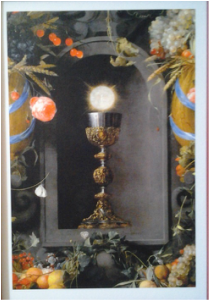 God is present in the sacraments; every time we receive a sacrament we are having an encounter with the living God. In the Eucharist we encounter Jesus Christ: body, blood, soul, and divinity. Nothing less. The fact that we have this miracle and reality offered to us every day is beyond any gift we could hope for, leave alone deserve. But because of the unfathomable mercy and love of God, Jesus came into our world and then did not leave us alone when He died and rose. God-with-us is truly God-with-us-always in a tangible, sensible way. Though we cannot understand how this is, our faith tells us that Jesus is with us in such a way that we can derive all our strength from this reality. We do not have to worry about what life dishes at us. All we need to do is cling to Him and therefore, to let Jesus be our strength in our great weakness and powerlessness. This is our faith. Finally, God is present to us through that which He has created. In the encyclical Laudato si’, Pope Francis makes it clear that we are stewards of the earth, as the Bible indicates, and that in beauty we see God reflected. The Pope wrote: “What is more, Saint Francis, faithful to Scripture, invites us to see nature as a magnificent book in which God speaks to us and grants us a glimpse of his infinite beauty and goodness. ‘Through the greatness and the beauty of creatures one comes to know by analogy their maker’ (Wis 13:5); indeed, ‘his eternal power and divinity have been made known through his works since the creation of the world’ (Rom 1:20). For this reason, [St.] Francis asked that part of the friary garden always be left untouched, so that wild flowers and herbs could grow there, and those who saw them could raise their minds to God, the Creator of such beauty.[21] Rather than a problem to be solved, the world is a joyful mystery to be contemplated with gladness and praise.” *  Not only do we find God through what He has made, we also can find God’s presence anytime we participate in a loving act. If we try to act in mercy and compassion, that is, if we try to do everything with love, no matter how small the matter, we are in the presence of God. When we are loved by someone else, we are in the presence of God. It is so important that we can see the signs around us, so that we do not always need something along the magnitude of the planets aligning in order to recognize God is with us. It is essential that we realize God makes His home in our heart if we invite Him in. Through baptism we have received His presence, His gifts of faith, hope, and love, and we are connected forever to the Body of Christ, (all those alive on earth and those who have predeceased us and who are already in Heaven.) If we are weak, He is our strength. If we are suffering, Jesus is there with us to comfort and to guide us. He is there to heal us, whether it is in body or in spirit, but in the end, He is there to bring us home to Himself in Heaven. Jesus is our beacon and He is the destination. This is our faith.  Whether or not we have signs in the heavens, we can learn to see the signs of God’s love around us. He does make Himself known to us. If we beg Him to help us see His presence around us, God will do it. He will help us to be able to see little things as if they were as big as the Star of Bethlehem. If we ask, God will enable us to see with our hearts so that we do not really need to see with our eyes all the time. This is where we get confused: we expect to see with our eyes and forget that a heart turned to God sees more truly than our outer senses can ever perceive. Therefore, let us ask God to help us perceive the beacons of light which He sends and are present in our world constantly. Let us trust that He is with us always. May we ask God to help us see the beacons of light He offers to guide us! May we allow God to shine like the Star of Bethlehem within us, so that we may be filled with His light! May we be a beacon of the light of God’s love for others! In our weakness may we find His strength as we try to live within the uncertainties and complexities of our world! May we have hearts attuned to God, finding Him in His Word and in the Sacraments! May we find peace and bring peace to a world in need of it! And may we be filled with gratitude because of God's infinite care and mercy! Let us continue to meet in the Heart of Jesus! Peace! ©Michele L. Catanese *The quote is from paragraph 12 of the recent encyclical Laudato si’, written by Pope Francis. The entire encyclical can be found at: http://w2.vatican.va/content/francesco/en/encyclicals/documents/papa-francesco_20150524_enciclica-laudato-si.html The photo of the stars is found at https://en.wikipedia.org/?title=Star The icon is St. Ignatius in Prayer Beneath the Stars by Fr. William Hart McNichols. It can be found at http://www.fatherbill.org/gallery-views/holy-men-icons/product/133-st-ignatius-in-prayer-beneath-the-stars Following the icon is a favorite painting, a print of which hangs in my house: Chalice and Host Surrounded by Garlands of Flowers by Jan Davidsz de Heem (1648) The following two photos are mine. The first is a garden in Ireland and the second is the sky, taken while on a recent trip to New Mexico. |
Heart Speaks to Heart
|

 RSS Feed
RSS Feed

